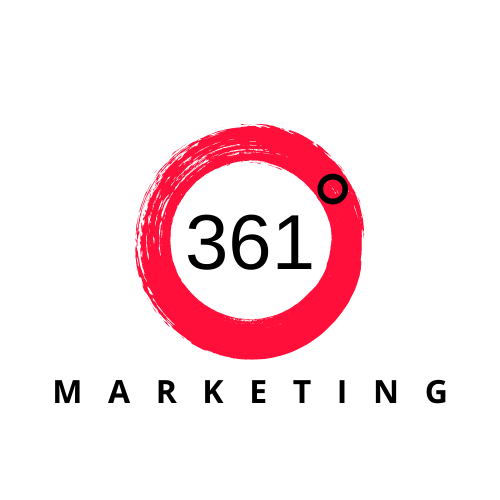In the fast-evolving world of digital marketing, Search Engine Marketing (SEM) continues to stand out as one of the most effective ways to drive visibility, traffic, and conversions. As we move through 2025, consumer behavior, search trends, and AI-driven platforms are reshaping how businesses reach audiences online. To stay ahead, companies need to adopt smarter, data-backed SEM strategies that not only attract attention but also deliver measurable results.
In this article, we’ll explore five absolutely powerful SEM strategies for 2025 that can help businesses strengthen their online presence and dominate search results.
Understanding the Power of SEM in 2025
SEM is a digital marketing strategy that uses paid advertisements to appear in search engine results. Unlike SEO, which focuses on organic ranking, SEM allows businesses to instantly gain visibility by bidding on targeted keywords and displaying ads to potential customers actively searching for specific products or services.
In 2025, the power of SEM lies in precision targeting and personalization. With AI driven platforms, brands can reach the right audience at the right time based on intent, demographics, and browsing behavior. Moreover, evolving ad technologies and automation make SEM an indispensable tool for companies looking to boost leads, sales, and brand recognition in a competitive digital landscape.
Strategy 1 – Mastering AIPowered SEM Campaigns
Artificial Intelligence is transforming how SEM campaigns are designed, managed, and optimized. AI-powered tools now analyze vast amounts of data to predict user intent, automate bidding strategies, and personalize ad copy for better engagement.
In 2025, smart bidding algorithms in platforms like Google Ads use machine learning to adjust bids in real-time, maximizing conversions while minimizing costs. Automation ensures that campaigns remain efficient, even with minimal manual intervention.
By leveraging AI, marketers can identify high-performing keywords, test multiple ad variations automatically, and allocate budgets strategically across channels. This not only improves ROI but also saves valuable time and resources. Businesses that integrate AI-driven SEM strategies can expect more accurate targeting, improved ad relevance, and greater control over campaign performance.
Strategy 2 – Leveraging Data-Driven Keyword Research for SEM Success
Effective SEM begins with understanding what your audience is searching for. Traditional keyword research is evolving into a more data-driven approach that focuses on search intent, user behavior, and contextual relevance.
In 2025, marketers must go beyond high-volume keywords and focus on intent-based keywords that align with each stage of the buyer’s journey. Tools like Google Keyword Planner, SEMrush, and Ahrefs provide insights into keyword performance, cost per click (CPC), and competition levels.
The key is to analyze not just search terms but also behavioral data, what users click on, how long they stay, and what actions they take afterward. By continuously refining your keyword list and eliminating underperforming terms, you can create highly targeted campaigns that deliver higher clickthrough rates (CTR) and lower acquisition costs.
Strategy 3 – Optimizing SEM Landing Pages for Higher Conversions
Even the best SEM campaign can fail if the landing page isn’t optimized. In SEM, the landing page acts as the bridge between your ad and the desired user action. A poorly designed or slow-loading page can cause potential customers to leave instantly.
In 2025, landing page optimization focuses heavily on speed, mobile responsiveness, and user experience. Google’s Core Web Vitals now play a major role in determining ad quality and ranking. Businesses should ensure that landing pages are fast, visually appealing, and tailored to match the ad’s promise.
Adding clear call-to-action (CTA), concise copy, and trust-building elements like testimonials can improve conversion rates dramatically. A/B testing different layouts and messages can also reveal what resonates best with your target audience, ensuring maximum ROI from each SEM click.
Strategy 4 – Integrating SEM with Social Media and Content Marketing
A truly powerful SEM strategy doesn’t exist in isolation. In 2025, businesses are realizing the benefits of integrating SEM with social media advertising and content marketing to build a cohesive digital ecosystem.
When your SEM ads and social content share the same tone, messaging, and goals, it creates consistent brand awareness across multiple platforms. For instance, a business promoting a seasonal campaign can run Google Ads for high-intent searches while simultaneously running social media ads that reinforce the message through engaging visuals and storytelling.
Additionally, SEM insights can fuel your content marketing strategy. High-performing keywords from paid campaigns can guide blog topics, landing page content, and even video marketing ideas. This integrated approach ensures that every piece of your marketing puzzle works together to attract, engage, and convert potential customers.
Strategy 5 – Tracking and Measuring Search Engine Marketing Performance with Analytics
Without accurate measurement, even the most advanced Search Engine Marketing strategy loses its effectiveness. Analytics provide the insights needed to understand what’s working and where improvements are needed.
In 2025, businesses rely on advanced tools like Google Analytics 4 (GA4), Google Ads dashboards, and AI-driven reporting systems to track metrics such as impressions, CTR, conversion rate, Quality Score, and ROI. By setting up conversion tracking and integrating analytics with CRM systems, marketers can get a clear picture of how Search Engine Marketing contributes to actual revenue growth.
Regularly reviewing campaign data helps identify trends, adjust budgets, and optimize underperforming ads. The key is to use analytics not just for reporting, but for continuous improvement, ensuring that every dollar spent delivers measurable business results.
The Future of Search Engine Marketing – What to Expect Beyond 2025
As digital marketing continues to evolve, Search Engine Marketing will grow even more intelligent, automated, and personalized. Emerging technologies like voice search, visual search, and AI assistants will reshape how users interact with search engines. Marketers will need to adapt by optimizing campaigns for conversational keywords and more intuitive ad experiences.
Data privacy regulations and AI ethics will also influence how ads are targeted, ensuring transparency and trust. The future of Search Engine Marketing lies in the ability to merge creativity with automation, delivering ads that not only reach the right audience but also resonate deeply with them.
Final Thoughts on Building a Strong Search Engine Marketing Strategy
Success in Search Engine Marketing requires more than just running ads; it’s about building a strategic, data-backed, and creative approach that evolves with technology and consumer trends. The five strategies discussed above, AI-driven campaigns, data-focused keyword research, optimized landing pages, integrated marketing, and analytics, provide a roadmap to Search Engine Marketing excellence in 2025.
By applying these principles consistently, businesses can ensure long-term visibility, engagement, and profitability in an increasingly competitive online world.
For more information, visit 361 Degree Marketing.
- Written by: 361 Degrees Marketing Team
- Posted on: November 5, 2025
- Tags: advantages and disadvantages of digital marketing, advantages of digital marketing, difference between traditional and digital marketing, digital marketing agency near me, digital marketing blogs, digital marketing logo, google digital marketing, traditional marketing vs digital marketing, Brand awareness, creative digital marketing, Design, difference between traditional marketing and digital marketing, Digital, digital marketing in india, digital marketing jobs, digital marketing process, digital marketing projects, digital marketing services, event branding, fundamentals of digital marketing, future of digital marketing, importance of digital marketing, off page seo, SEM, seo services, stationery design, which on page element carries the most weight for seo



